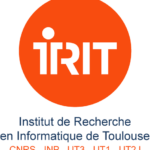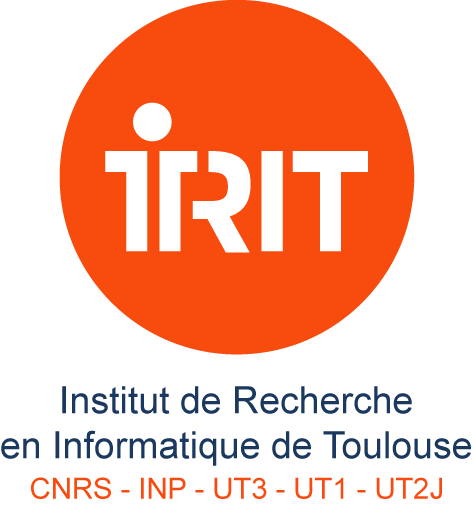
IRIT: Institut de Recherche en Informatique de Toulouse
I. General Context
Autistic Spectrum Disorder (ASD) is a brain development disorder characterized by a wide range of behavioral, social, and communication challenges. These challenges can be mitigated with early identification [1]. With its increasing prevalence, affecting 1 in 59 children, there is a critical need for early identification and intervention [1, 2]. Diagnosing ASD is often reliant on subjective clinical assessments, leading to inconsistencies and potential biases. Moreover, the heterogeneous nature of ASD, which manifests across a spectrum of symptoms and severity levels, poses significant challenges in accurate diagnosis. This complexity is further compounded by the fact that ASD frequently co-occurs with other developmental or psychiatric conditions, making it challenging to isolate and identify ASD-specific traits [7]. One of the vital challenges in autism research today is improvement of diagnosis performance in existing diagnostic tools so that individuals can have more specific, improved, and faster service as early as possible. To improve the diagnosis process of ASD, researchers have recently started to adopt machine learning (ML) intelligent methods [5-11]. Researchers have explored the use of various data sources, such as brain imaging (e.g., fMRI and EEG), eye-tracking technology, genetic markers, and comprehensive behavioral data, to develop predictive models for ASD. These models offer the potential to detect ASD at an earlier age and with greater accuracy. However, existing ML approaches typically oversimplify ASD classification, disregarding its spectrum nature and leading to biased results [8].
This research project sets out to achieve a multifaceted data-driven diagnostic method of autistic spectrum disorder. The primary aim is to develop an innovative framework that leverages advancements in artificial intelligence, multimodal data integration, and explainable AI methodologies to achieve several key objectives. This involves integrating diverse data sources, including behavioral observations, neurobiological markers, and genetic information, into an automated comprehensive diagnostic tool. Furthermore, the project will prioritize explainability in the detection process, enabling clinicians and researchers to interpret and trust the results.
II. Internship Objectives:
The Master 1/2 internship aims to contribute to the development of a comprehensive data-driven diagnostic method for ASD. Specifically, the internship will focus on the following objectives:
- Exploration of Multimodal Deep Learning Architectures: Review literature on multimodal deep learning architectures and fusion techniques.
- Analysis of Intermodal Interactions: Study the interconnections between different data modalities, examining how each modality enhances the understanding of ASD characteristics.
- Multimodal Explainability Experiments: Implement and conduct experiments on explainable Artificial Intelligence (XAI) and their application in multimodal learning.
The internship will involve in-depth literature review, experimental design, data analysis, and interpretation of results. The selected candidate will collaborate closely with our research team, gaining hands-on experience in advanced data analysis and in explainable AI.
III. Requirements
- Enrollment in a Master 1/2 program, preferably in Computer Science, Data Science.
- Strong background in machine learning, deep learning, and data analysis.
- Proficiency in programming languages such as Python and experience with relevant libraries (e.g., TensorFlow, PyTorch).
- Strong analytical and problem-solving skills, with a keen interest in multidisciplinary research.
- Prior experience or coursework in machine learning, computer vision, natural language processing, or explainable AI is highly desirable.
IV. Duration and Location
The internship duration is 5~6 months (“stage fin d’études”). The starting date must be before the end of March 2023. The work will be conducted at IRIT laboratory in Toulouse.
V. Application Process
Interested candidates should submit the following documents:
- Curriculum Vitae (CV)
- Academic transcripts
Please send your application to moncef.garouani@irit.fr & Julien.aligon@irit.fr.
References:
[1] Santana et al., (2022), rs-fMRI and machine learning for ASD diagnosis: a systematic review and meta-analysis. In Scientific Reports.
[2] Maenner MJ et al., (2023), Prevalence and Characteristics of Autism Spectrum Disorder Among Children Aged 8 Years – Autism and Developmental Disabilities Monitoring Network. In MMWR Surveill Summ.
[3] Chakrabarti et al., (2009), Genes related to sex steroids, neural growth, and social emotional behavior are associated with autistic traits, empathy, and Asperger syndrome, Autism Research.
[4] Wiggins et al., (2015), Using standardized diagnostic instruments to classify children with autism in the study to explore early development, J of Autism and Developmental Disorders.
[5] Fadi Thabtah (2019), Machine learning in autistic spectrum disorder behavioral research: A review and ways forward, Informatics for Health and Social Care.
[6] Jazouli et al., (2019), Automatic detection of stereotyped movements in autistic children using the Kinect sensor. In International Journal of Biomedical Engineering and Technology.
[7] Bone et al., (2014), Applying machine learning to facilitate autism diagnostics: pitfalls and promises, J of Autism and Developmental Disorders.
[8] Duda et la., (2016), Use of machine learning for behavioral distinction of autism and ADHD, Translational Psychiatry.
[9] Ribeiro et al., (2016). » Why should i trust you? » Explaining the predictions of any classifier. In Proceedings of the 22nd ACM SIGKDD international conference on knowledge discovery and data mining (pp. 1135-1144).
[10] Lundberg et al., (2017). A unified approach to interpreting model predictions. Advances in neural information processing systems, 30.

